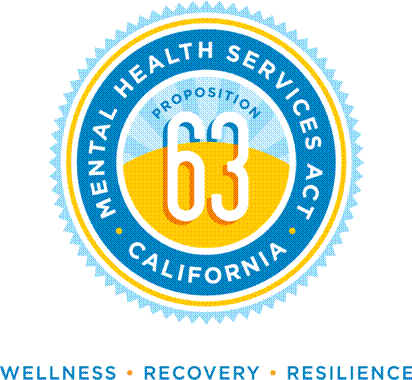Prevention Programs Build Resilience
MHSA Prevention And Early Intervention Funds
MHSA Prevention and Early Intervention Funds
The Mental Health Services Act (MHSA) seeks to improve services and bring them to those who are most in need of mental health care. While each county can exercise some discretion to use the funds to meet the unique needs of their community, MHSA requires that funding first be allocated to certain categories: Community Services and Supports, Innovation, and Prevention and Early Intervention. Learn more about how MHSA funds are distributed in San Mateo County.
Under MHSA, Prevention and Early Intervention (PEI) funds are earmarked to help individuals prior to the onset of mental illness, and at least 51 percent must be allocated for PEI programs serving youth ages 0-25. For FY 17/18, San Mateo County has set aside $5.9 million for PEI, $3 million of which will fund youth-focused programs and services.
PEI aims to increase timely access to services for unserved and underserved populations and prevent the negative consequences of untreated mental illness. Efforts include early intervention, prevention and outreach to increase recognition of the signs of mental illness, access and linkage to treatment, stigma and discrimination reduction and suicide prevention. San Mateo County PEI funds have brought to life important programs and efforts such as the Suicide Prevention Committee, Health Equity Initiatives, parenting courses (The Parent Project®), and public trainings on how to recognize and help someone in mental distress (Mental Health First Aid), Senior Peer Counseling services and many more programs (see full list). Because it’s so important to prevent or identify behavioral health issues early, many of our PEI programs such as Teaching Pro Social Skills (TPS) and Project SUCCESS, target our youth population.
Teaching Pro Social Skills
 Teaching Pro-Social Skills (TPS) is
a social and emotional education program for elementary school
students operated by the San Mateo County Human Services
Agency. The program provides the space and tools for students
to learn and hone important social and emotional skills that will
benefit them in school and throughout life.
Teaching Pro-Social Skills (TPS) is
a social and emotional education program for elementary school
students operated by the San Mateo County Human Services
Agency. The program provides the space and tools for students
to learn and hone important social and emotional skills that will
benefit them in school and throughout life.
Since 2014, TPS has served 351 first through fifth grade students throughout San Mateo County including Taft, Hoover, Fair Oaks, Belle Haven and Bayshore Family Resource Centers. Teachers refer students who display behaviors in class that are aggressive or disruptive, or students that appear to be withdrawn or otherwise unable to interact with their peers in a healthy way. The teacher identifies specific skills that would be helpful for the student from a list of 60 different skills such as learning to regulate emotions, making better choices or positively interacting with their peers.
During FY 16-17, 96 students participated in 17 TPS groups conducted across eight schools. Fifty three percent of students were Spanish-speaking, while 43 percent were English-speaking. Courses are taught by bilingual and culturally sensitive staff.
Groups take place during school hours, with no more than 7 students. Each group is comprised of ten weekly sessions facilitated by a psychiatric social worker and a community worker, with each session centered around learning a new skill. According to TPS Program Manager Donovan Fones, groups usually begin by focusing on essential classrooms skills, such as listening, asking for help and accepting consequences. Students learn the new skill, then are given the opportunity to practice these skills by role-playing with their peers in the group. Students are assigned homework after each session, which allows parents to be a part of the process and help them practice skills at home and in the classroom.
“The principal has told me that she likes the TPS group because the… students who are in it often times trigger one another, and this group helps them practice the skills to give appropriate social responses to one another,” said Samantha Johnston, PSW, TPS group facilitator at La Honda Elementary.
Teachers assess students’ skills on a scale of 1-5, before and after the program. Fones says that even a one-point change is a significant marker of improvement. Last year, a group of Brentwood Elementary students who displayed disruptive behavior in the classroom showed a 3-point change in learning how to avoid trouble, and a nearly 2-point change in their ability to accept consequences. Another group of students who were referred to TPS because of their conflictual interactions with their teacher, showed greater than a 2-point improvement in being honest. A group of students identified as targets of bullying by peers showed improvements in skills, such as expressing feelings and dealing with your anger.
Group facilitators reported positive behavioral changes such as improved friendship-making skills, alternatives to aggression and coping with feelings.
“I’ve had a student comment how this group has helped her communicate better with peers by maintaining eye contact and engaging in conversation when greeting someone new,” said Rose Markotic, PSW, Bayshore Elementary.
Teachers have observed positive changes and progress in their students. Most students are not referred back to TPS in following school years, indicating that they are successfully practicing their learned skills.
Project SUCCESS
 Project SUCCESS (Schools Using
Coordinated Community Efforts to Strengthen Students) is also
funded by PEI dollars. The program, operated by Puente de la
Costa Sur, or Puente, serves all youth ages 9-18 in the La
Honda-Pescadero Unified School District by providing drug and
alcohol prevention education to students in an effort to reduce
their risk of mental health and substance use issues and mitigate
the need for behavioral services down the road. The
research-based interventions utilized by Puente staff have been
effective in reducing risk factors and enhancing protective
factors in students.
Project SUCCESS (Schools Using
Coordinated Community Efforts to Strengthen Students) is also
funded by PEI dollars. The program, operated by Puente de la
Costa Sur, or Puente, serves all youth ages 9-18 in the La
Honda-Pescadero Unified School District by providing drug and
alcohol prevention education to students in an effort to reduce
their risk of mental health and substance use issues and mitigate
the need for behavioral services down the road. The
research-based interventions utilized by Puente staff have been
effective in reducing risk factors and enhancing protective
factors in students.
The multicultural region served by Project SUCCESS is home to one of San Mateo County’s most underserved and isolated populations. Eighty percent of the clients served by Puente are Latino and many parents are monolingual Spanish speakers residing in an area with limited public transportation. A majority are migrant families living in substandard housing, who have passed on generational trauma from difficult immigration experiences and the harsh realities of living in a low socioeconomic region.
“The impact of generational trauma can be profound, It inhibits everything else. It inhibits good relationship building. It inhibits trust. It inhibits the ability to pay attention in school. As an agency, we definitely understand that,” said Puente Clinical Director Joann Watkins.
The trauma, isolation, culture and stigma play a factor in the choices students make about drug and alcohol use, as well as families’ capacity to have meaningful conversations about behavioral health issues.
Project SUCCESS attempts to fill that gap by providing education and support to students from a young age and throughout their formative years. In addition to groups for high schoolers and seminars on topic such as healthy dating, Project SUCCESS curriculum includes eight age appropriate educational sessions taught in English and Spanish for all 5th and 8th grade students in the school district. Topics range from what to expect from puberty, to issues related to substance use, suicide prevention and anxiety. For younger students, fun activities like Bingo are used to help facilitate these workshops. For older students, activities such as the annual field trip to the Princess Project to pick out a prom dress serve as an opportunity for education about date rape drugs, relationship abuse and substance use.
 Because of the small district size –
about 300-350 students – Puente staff, who are embedded within
the school campuses, have the unique ability to build an ongoing
relationship with each student to provide them support and reduce
stigma throughout their formative years spent in school.
Because of the small district size –
about 300-350 students – Puente staff, who are embedded within
the school campuses, have the unique ability to build an ongoing
relationship with each student to provide them support and reduce
stigma throughout their formative years spent in school.
“We stick with these kids,” said Watkins. “I have [Project Success] kids now in college who I started with.”
With many workshops taking place in the schools, the program allows students to engage with mental health professionals in a setting they are comfortable with. By the time students reach high school, they need little coaxing to talk candidly about these issues, because they are familiar with Puente staff and know that what they disclose will be kept confidential.
The program also offers parent education programs, which empower them to be collaborative partners’ in their child’s journey. Students who display a need for behavioral health services are referred to the Puente team. While Project SUCCESS does not provide mental health treatment services, the connection forged between Puente’s mental health staff and students makes it easier for students to ask for and access these services, should they need them. Twenty-five Project SUCCESS students have gone on to receive therapy services.
Every student, family member and school staff member in the district have free, unrestricted access to consultation and direct referrals to therapy, case management and mental health services.
In coordination with San Mateo County Health, Puente has adopted the Search Institute’s Developmental Assets Profile (DAP) as a measurement tool for student development. The profile outlines 40 internal and external assets, which aid young people in healthy development in the overarching areas of support, empowerment, boundaries and expectations, constructive use of time commitment to learning, positive values, social competencies and positive identity.
The 131 Project SUCCESS students who completed a survey last year to assess development in these assets showed an increase in both internal and external assets with strengths in the areas of support and boundaries, and expectations. The results also showed students could use some support in the areas of positive identity and constructive use of time. In response, the team has developed trauma-focused interventions, which include art therapy, recreation and movement-based activities as a way to reduce risk factors and build self-esteem.
PEI Outcomes
 Behavioral health outcomes of PEI
program participants are difficult to track because when
prevention and early intervention efforts do work, potential
mental health and substance use issues are addressed early, and
there is less need to engage in behavioral health care.
Behavioral health outcomes of PEI
program participants are difficult to track because when
prevention and early intervention efforts do work, potential
mental health and substance use issues are addressed early, and
there is less need to engage in behavioral health care.
However, families, teachers, behavioral health workers and most importantly, clients can attest to the power of prevention and early intervention to help maintain happy and healthy communities. San Mateo County continually strives to expand PEI services, especially in innovative ways which target those who need these services most.
Part of the $3 million set aside for FY 18/19 will help fund a youth mobile crisis support and prevention program, which will allow us to respond quickly to youth mental health emergencies.
For more information on MHSA in San Mateo County, visit www.smchealth.org/bhrs/mhsa.
